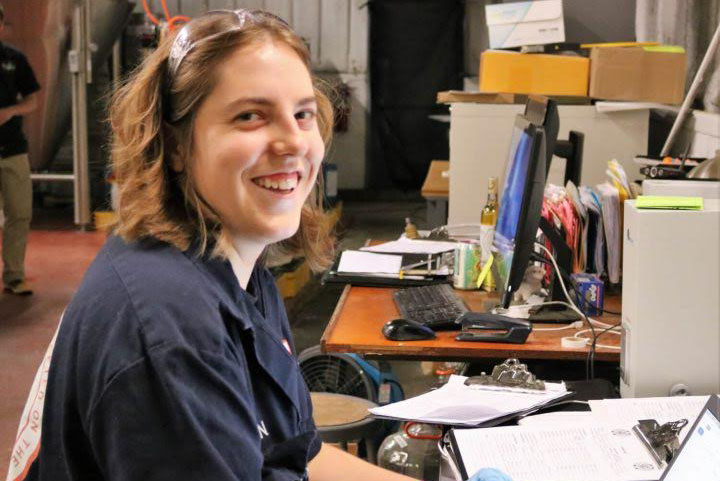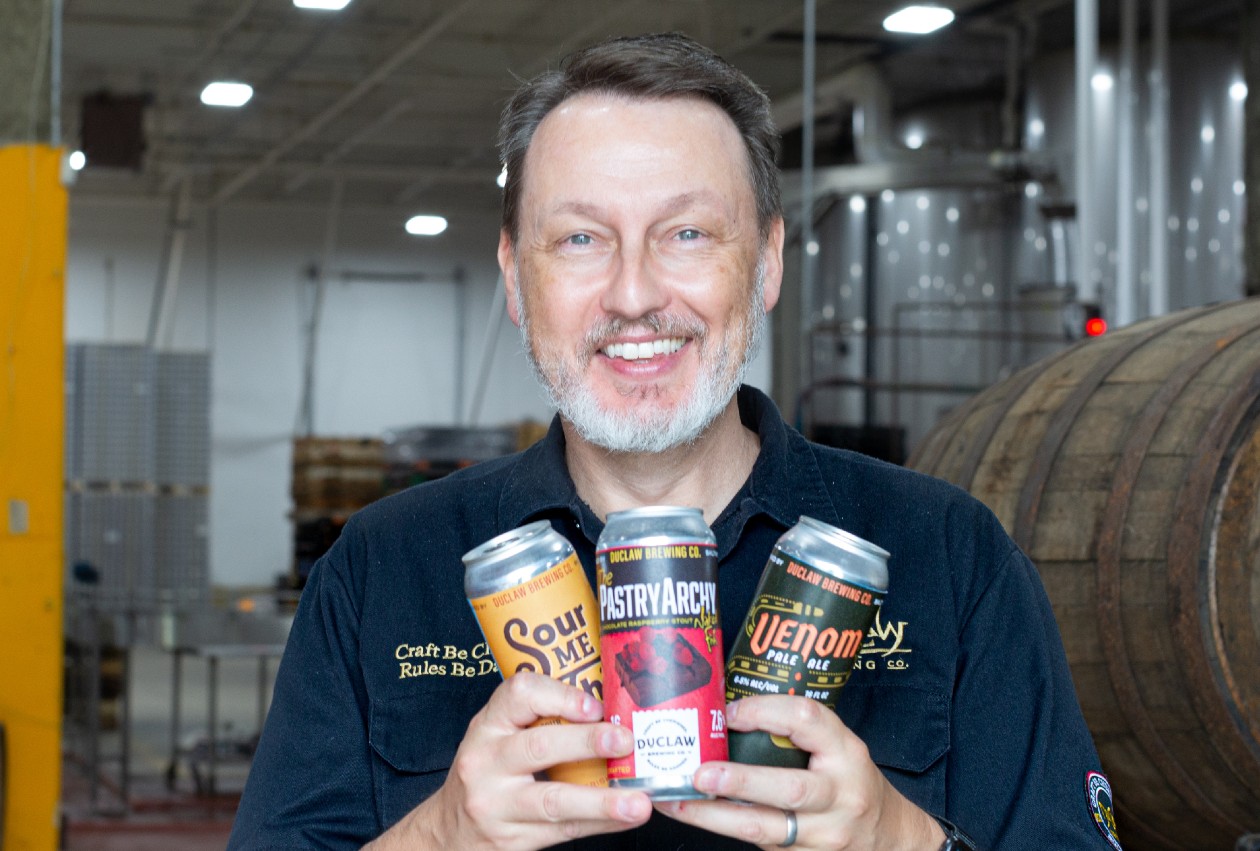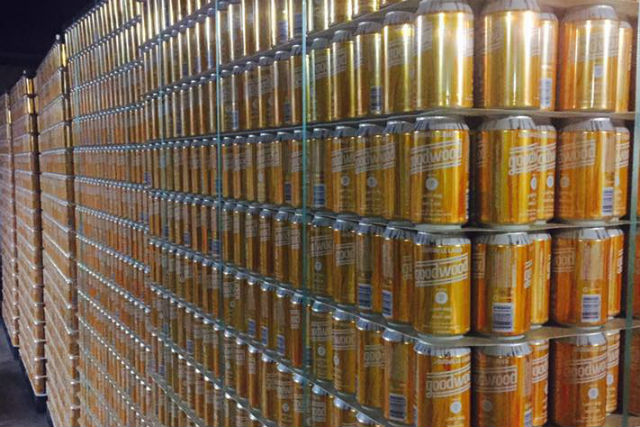
Not all brewers reach brewing in the same way. However, the vast majority of breweries in the U.S. are typically founded on the same story — homebrewing.
Kim Jordan’s story isn’t much different. The co-founder and CEO of New Belgium Brewing in Fort Collins, Colorado, Jordan and then husband Jeff, discovered the passion for beer and brewing in their own basement. But, while Jeff was more interested in the brewing aspect of the business, Jordan found herself invigorated with the nuts and bolts of culture in the brewing business.
It was important to Jordan to have a set of guiding principles from day one and it was clear to her that they’d have to incorporate employees in the journey to build a successful road. The major key to Jordan was transparency and trust, which she has maintained for more than 20 years with her employees, and in this interview.
But New Belgium Brewing, although now considered a top five craft brewery in the U.S., it wasn’t always a dual location, with more than 500 employees.
In 1991, when New Belgium was born, there was a lot of work involved in growing a business and raising Jordan’s first child. “We were trying to do this balancing act of working together, having a family and also building a fast-growing business,” said Jordan. “It was pretty clear to me, probably associated with my liberal upbringing, that we needed to enlist the help of our co-workers. A big piece in that is fundamentally believing they want to do very good work and be connected to something that’s bigger than just their job.”
It was important to Jordan that everyone understood how the business was operated. “Those early days were a lot of hard work,” she said. “And in some ways … one of the benefits I think of that for people was this really high degree of transparency and trust, where we really started building a close knit, values aligned group of people while we were bottling for 14 hours, or spending the weekend going to beer festivals.”
Jordan said the idea of securing distribution channels in the early days was almost too sophisticated. “Our very first distribution channel was me loading up cases of beer in the back of our station wagon,” she said. “Very shortly there after we upgraded to a minivan so that I had more room for more beer inside the vehicle. We self distributed here inside of Fort Collins.”
New Belgium also had a few accounts in Boulder, Colorado early on, so Jordan or Jeff would at one point drive up for deliveries every couple of weeks. However, the hustle was yielding results and new opportunities started to take form, but not without some learning curves.
“We decided we needed a distributor to do the rest of the state,” explained Jordan. “We were making enough beer that we had a little extra to sell, and we knew we couldn’t do the whole state, but we wanted someone to actually distribute in Denver and in Boulder.”
New Belgium picked a distributor in Denver with hopes of immense success, but quickly realized the opposite. “We sold them a bunch of beer, we called them the next week, to ask, ‘how much beer would you like this week,’ and they said, ‘we don’t need any,’” said Jordan. “We called them the next week and it was the same story, and we called them the third week and it was the same story. Jeff and I thought: ‘we’ve got to go down and look at their warehouse.’ We drove down there and all of our beer was still sitting there shrink wrapped. They hadn’t sold any beer at all.”
Jordan believed the beer was never to be sold. The distributor had aligned with another Colorado brand and they figured the way they were going to make the one brand more successful was to not distribute New Belgium. “We were both naive and entrepreneurial enough that we rented a truck, picked up all of that beer and maybe a week later had a new distributor,” she said. “We didn’t threaten lawsuits, we didn’t think they would threaten lawsuits, we just sort of made a decision to make the change.”
The next week New Belgium had secured another distributor and started to secure greater exposure throughout the state. The hustle quickly allowed the brand to get in front of more beer drinkers in the state, but also allowed the team to focus on what it already did well … which was make great beer.
One aspect that has stood the test of time for Jordan has been witnessing customers enjoying New Belgium’s brands. “It’s nice to know that customers choose us and they recognize that we work really hard to make fabulous beer,” she said.
Although the New Belgium sensation started in Colorado, it has drastically expanded the world over, with Fat Tire being found just about everywhere. That expansion was one that started slow but has found itself in the craft brewing boom.
“It certainly has had a few step-ups, I guess,” said Jordan. “It’s one of those things that you don’t have a moment where you’re like: ‘okay, now we’re going to be totally different than we were, or make a bunch of changes because there are changes in the industry.’ It’s more subtle than that and it kind of happens over a period of time.
“The thing I think about that’s really great, in addition to our industry being really interesting and successful and is populated with a lot of, in the vast majority, people that are pretty special and fun; in addition to that for New Belgium, I’m a big fan of competition, I think it makes us better at what we do. When you’re running a bit nervous, you think: ‘okay, how can we do this better? How can we make sure that our portfolio is what beer drinkers want to drink? How do we make sure our physical location is interesting and fun for people?’ I think, that’s a never ending process and mindset.”
The continuous questions and challenging of New Belgium by Jordan is one that has trickled down to the entire company, creating a desire of growth and prosperity for everyone at the brewery. “We have always grown,” said Jordan in terms of the business.
According to Jordan, due to the size of New Belgium, growth has been different from year to year — some years being better than others. And, even though she said that double-digit growth for a company the size of New Belgium is difficult, it boasted 20 percent growth in 2014, up from 4 percent in 2013.
“Doing a lot of things right, offering beers that beer drinkers want to drink, and hitting on a lot of the right formulas,” explained Jordan for 2014’s success. “Part of that, too, we invested a lot of money in building capacity here. We were focusing on getting that right and working on a packaging refresh, so in 2013 we were working on a lot of things we knew would take some time to lay into place. So, 2014 has proven, to reap the benefits of that.”
Some of the work they experienced during that period was also carry over from the decision to open a second brewery, which was truly formulated in 2009. “As a part of that decision … we knew that this brewery would not have enough capacity and would be too far away and wouldn’t allow us to have a stronger brand presence on the [East Coast]. We made the decision way back then that if we were going to sell beer on the East Coast, we were going to commit to building a brewery there.”
New Belgium was actually scouting Asheville, North Carolina way back in 2009, but the actual process was more in 2012. “Asheville has great water,” explained Jordan. “It’s mountain runoff and so of course the very first thing that brewers look at is the quality of the water. Secondly, we wanted to be in a progressive community. When we build we want to use leading edge thinking on the built environment, and urban planning. We really got the sense that Asheville was going to be enthusiastic about that. We felt like it was a place that our coworkers might be interested in relocating to.”
Several years prior, New Belgium had looked to open another brewery in California and used a broker, which helped them to realize a strategy when the desire arose to proceed East. “When we started looking on the East Coast, we enlisted a site selection expert,” explained Jordan. “It’s kind of amazing what they can help you with because it’s all they do. They are experts at it. When we looked along the Eastern Seaboard, all the way from Maine to Georgia, we looked at water quality, proximity to rail, good roadways, proximity to population. There were probably 40 criteria and Asheville was one of a handful of cities that really came out on top.”
The new location will be a 500,000-barrel brewery at its ultimate capacity. The first stage will be closer to about 300,000 barrels and will be fully up and functioning, if everything goes as planned, by the end of 2015.
“I talked about the $30 million in capacity we invested in Fort Collins, in 2012 and 2013, and originally we thought, we’ll start building Asheville in 2013, and there will be overlap where we’ll have extra capacity in the two locations for probably a couple of years, but that would be no big deal,” she said. “Then we started penciling it out and had just finished the audacious task of selling the company to our co-workers, and it all seemed like: ‘wow, this is a lot, we are really stretching ourselves in every way, not just financially, but in every way.’ We decided to regroup and push off the start date of the brewery.
“You never wish for that start, right? Because you’re talking to people and everything’s starting to mobilize, then ‘whoa, time out.’”
When the construction finally began, Jordan and her team heard people speak of rumors that they had decided not to move forward, but it was simply an adjustment for time. “That wasn’t the case, and it surprised me to hear that, but that was certainly the first hurdle,” explained Jordan. “The flip side of that though, is that it gave us time to do a lot of planning, and there is a maxim in sustainability planning, the more planning you can do up front, not on the fly, the more alignment you get and the better the project goes. Knock on wood, things are going really well.
“I am sure we’ll have times where we’re either frustrated or nervous, or concerned about something, but over the main, to date, the project is going pretty smoothly. Pushing out the start date really helped us to be ready for that. We are in 2015 walking what we call the gauntlet of swinging knives in capacity because whatever growth we have this year comes at absolute every barrel we can from this brewery. And that is certainly going to be a challenge.”
As a brand Jordan speculates that the addition of the second brewery will give the brand a locale on the Eastern Seaboard and she believes they will have visitors much like they have at the Fort Collins location, which is about 150,000 a year.
“We find that when people come here and hear about employee ownership, and advocacy and environmental stewardship and being a part of both a brewing community and a larger community, people find that story intriguing and attractive,” said Jordan. “Asheville has a much bigger tourist base to the community than Fort Collins does, so it will really give us an opportunity to talk to a lot of beer drinkers and tell them our story, which we think will be great.”
The second piece that excites Jordan is the ability to live out New Belgium’s commitment to community in two locations, as opposed to just the one Fort Collins location. “That’s a big and interesting and challenging goal for us,” she said. “I think our management group and our co-workers in general are really excited about that challenge. The general manager of the Asheville brewery said he noticed the work of the Fort Collins co-workers, in support of the Asheville project, is really picking up. That he notices a lot more outreach from Fort Collins, and that it’s not just like someone saying: ‘you need to remember to keep Asheville in mind,’ people are doing it because they know what we are doing here, and they know how important it is to keep the two places firmly in touch with one another.”
Jordan said the new brewery feels like it’s already embedded deeper in the community of Asheville, which is strikingly true if you’ve ever been in the past few years and noticed the Fat Tire replica bikes hanging in restaurants. The Asheville brewery will also be able to enjoy the values that New Belgium has strived incorporate since its establishment. “We are going to work on continuous innovation and improvement, we are going to have authentic relationships and communication with our co-workers; we’re going to have fun,” said Jordan. “So, it will be interesting to see how they express that.”
The brand, although growing and expanding, Jordan’s grand picture for the brewery and craft beer is more of a collaborative effort among breweries. She sees brewers brewing together, building brand and a flavor that is distinct, but also a commitment to applying a craft, celebrating food and celebrating ownership. “Sort of a progressive business practice,” she explained. “I’m really interested to see if we can be fundamental in seeing if that’s kind of a possibility.”






1 Trackback / Pingback